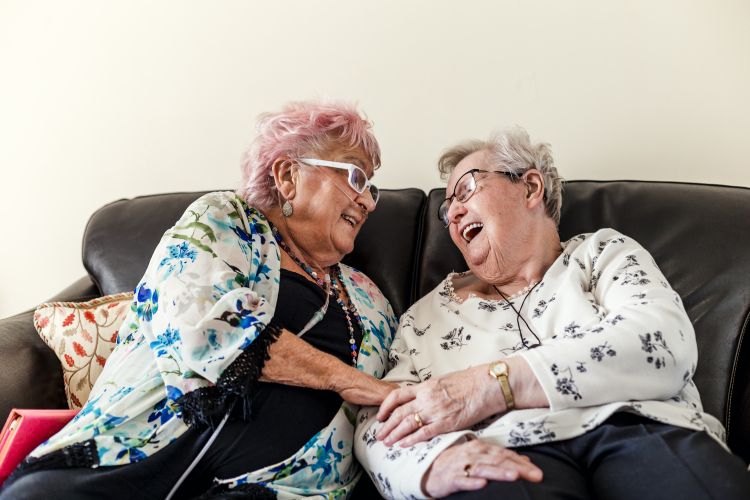Disabled workers in Wales and Covid-19

Public awareness of disability issues is often influenced by stereotypes in the media. This is often very polarising, painting disabled people either very negatively or as inspiring heroes simply for living their lives.
During this crisis some disabled people have found that the homeworking opportunities that they had previously requested and had denied were overturned overnight as companies suddenly realised that the barriers that they placed in the way, could be overcome. For others, the reality of living with pre-existing conditions in a global pandemic can be frightening and exhausting.
As a trade union movement we need to do everything we can to protect disabled workers. We need to work in the safest possible way and to protect workers when that is not possible. And we need to mitigate against the impacts of an economic downturn following this crisis.
Issues facing disabled workers in Wales
- There has been a very defined move away from the social model of disability to the medical model. For many activists, who have fought hard against the medical model, this puts them further at risk. It also potentially undoes much of the work that disabled people, the Trade Union movement, Disability rights organisations and allies have done to discuss the importance of the social model of disability.
- The reporting of coronavirus deaths can be dehumanising. This is particularly true for disabled people when the media reports deaths with the caveat that the person had pre-existing medical conditions. These deaths are no less a travesty and deserve the same respect and solemnness.
- Shielding letters being sent to the wrong address or being delayed has caused problems for disabled workers. Trade Unions have supported many workers whose employers have not believed disabled workers, even when they have received a shielding letter.
- Significant numbers of disabled members who don’t feel safe at work are not being offered furloughing as a reasonable adjustment. One union gave the example of a member with a visual impairment in a distribution site who cannot observe social distancing because of their disability, being refused furlough. This member has been forced to take sickness absence and is now only receiving SSP.
- In many workplaces, the structures and hierarchies that exist prevent disabled workers from progressing. This can leave disabled workers trapped in jobs that underpay and undervalue their skills and achievements.
- This is a difficult time for those who have dementia or who are supporting a loved one with dementia whilst isolating. The support that they may have relied upon, or respite care they may have received may no longer be available.
- Unions are concerned about the impact of both going out to work and working from home on disabled members’ mental health.
- Disabled members have experienced difficulties getting reasonable adjustments agreed or keeping hold of them, in part because workplaces are often understaffed due to illness.
- For some disabled people who have requested home working for a long time, the speed at which employers allowed the shift to home working has been astonishing, leaving many wondering exactly why employers were previously so reluctant.
- Some disabled workers rely on an accessible workspace at work. If this is not available at home, home working can be harmful to their physical and mental health.
- Before the crisis, disabled people were already more likely to live in poverty. Universal credit disproportionately affects disabled people and a report by the UK Government Public Accounts Committee has accused Ministers of turning a ‘deaf ear’ to disabled people’s concerns. According to the report working disabled people face a significant drop in their financial support when they move onto universal credit. This is because the “work allowance” – designed to improve incentives for disabled people to work – is only awarded to people assessed as being unable to work. This leaves some working disabled people financially worse off every month.
If you’re a disabled worker consider joining a union today. Many unions have removed restrictions around membership joining and are providing legal support from the day of joining.
Employees whose work is critical to the coronavirus response are classed as critical workers in Wales. This includes health and social care workers, teachers, people working in supermarkets and many more occupations. There are approximately 490,000 critical workers in Wales, which is around one-third of the workforce.
Disabled people account for 15% of critical workers. They make up a similar proportion of all employees but there are differences within industries.
The Welsh Government published guidance in March 2020 on the types of businesses that should remain closed during the initial stages of the coronavirus pandemic. Business such as pubs, restaurants and leisure centres were included.
17% of all disabled employees work within industries told to close, which is slightly higher than the proportion employees who are not disabled (15%).
Your rights as a disabled worker

Section 44 of the Employment Rights Act 1996 provides workers with the right to withdraw from and refuse to return to a workplace that is unsafe.
There have been several examples of union branches walking off the job citing this law. If you think your workplace is unsafe due to Covid-19 contamination, contact your union for advice.
Read more about your rights if you refuse to work because of coronavirus safety concerns
The Equality Act 2010 is the key piece of legislation dealing with workplace discrimination. It protects workers from discrimination based on age, sex, disability, race, religion or belief, sexual orientation, marriage or civil partnership status, pregnancy or maternity, or gender reassignment.
Employers have a duty under the Equality Act 2010 to make reasonable adjustments for disabled people. The law says an employer only has to do what is reasonable.
The test of what is reasonable is an objective test. It is not just what an individual worker thinks is reasonable. When thinking about making reasonable adjustments, an employer can consider:
- its practicality
- the cost
- the organisation’s resources and size
- the availability of financial support
The overall aim should be, as far as possible, to remove, reduce or prevent any disadvantage faced by a disabled worker. This may include considering:
- the way that a person works
- any physical features of their workplace
- the absence of an auxiliary aid or service
- if it puts your disabled member at a substantial disadvantage compared with a person who is not disabled.
- how effective the change will be in avoiding the disadvantage your member would otherwise experience.
Union representatives have a key role to play in:
- promoting equal rights for all members. Reps can negotiate with employers for policies and procedures that advance equality and do not lead to one group being disadvantaged.
- creating a supportive atmosphere at work and in the union in which all members feel that they can participate and that their opinions are valued.
- challenging instances of harassment and discrimination and ensuring complaints are dealt with effectively.
- acting as a role model in treating everyone fairly.
For more information on how the Equality Act can protect workers visit our Covid-19 and reasonable adjustments guide for reps
What your employer should do
- Your employer should still be adhering to the law on reasonable adjustments. There is a mistaken belief that ‘normal business’ has been suspended as far as the Equality Act goes. Any reasonable adjustments you have negotiated should still be in place.
- People at increased risk, in discussion with their line manager, may require an adjustment to allow them to change their working arrangements or to work from home. Line managers should actively work with disabled workers to ensure they have the right support and are safe at work, especially during this Covid-19 crisis. If you are at increased risk talk to your line manager about adjustments, changing your working arrangements or working from home.
- All employers should look at their pay structures and carefully examine where disabled workers are within the organisation, and what type of contracts they work on. They should then seek to address any inequalities and create a plan with a timescale to make changes to rectify them.
- Employers should be undertaking risk assessments in consultations with unions for home working. Everyone should be able to work comfortably and safely. Employers should consider accidents, injuries, mental health, stress levels and the risk of violence, alongside other factors which allow workers to work comfortably and safely. Adjustments to keep workers comfortable, such as equipment to support good posture or to manage temperature, should be provided by employers. Read more about how to stay safe when working from home and how health and safety reps can help homeworkers.
- While there are health and safety risks related to homeworking to consider especially with equipment, and employers need to take reasonable adjustment requirements seriously; there are many benefits to home working for many people and we hope in future bosses will be more open to offering flexibility. This flexibility can be particularly advantageous to disabled people. The added flexibility can allow them to manage their work in a different way and we hope in future bosses will be more open to offering flexible working. Offering flexible working allows employers to benefit from being able to recruit from a larger group of people. Homeworking is also good for the climate as it cuts down on commuter emissions. Read our report on a green economy and a just transition.
- Employers should listen to disabled members within their workplace. Allowing disabled people, a safe space to organise, network and discuss can be the first step. But employers need to make sure that disabled people are actively listened to when they raise issues relating to disability and the workplace.

Read our coronavirus guide for reps for more information on workplace issues in the context of Covid-19 and for support in being effective at negotiating with employers.
What we’re asking Government to do to protect disabled workers
We're concerned that some employers are flouting the law. We're working with the Welsh Government to protect disabled workers and their income, jobs and health and access to services.
The disability employment gap and pay gap exists and will be deepened by this crisis. We will be working with Government to investigate how to examine this in greater detail and mitigate it.
Any action taken by the Welsh Government or UK Government must be part of a broader strategy to protect the health and safety of people at work. It must include stronger government guidance (underpinned by regulation) on the safety measures all employers must consider now. It must also include new powers (via a tripartite network, involving employers, unions and the HSE) for government to compel employers who do not follow these steps to close.
Read about how we campaign to improve disability equality in the workplace.
To give you an understanding of the workplace issues in the context of COVID-19, and to provide support in being effective at negotiating with employers and to protect the workforce click here.
The disability employment gap and pay gap exists and will be deepened by this crisis. We will be working with Government to investigate how to examine this in greater detail and mitigate it.
Tell us about your experience
Are you worried about not being able to stay safe from coronavirus at your workplace?
Please tell us your experiences using our whistle blowing form.
We will anonymously share the information about your health and safety concern with Welsh Government and the Health & Safety Executive (HSE). If you tell us it’s OK to pass on your details, we will also report the issue to your trade union for you.
Fill in our health and safety whistleblowing form
Join a union
Unions help workers get together, stop people being treated unfairly and get a better deal from their employers.
They’re there when times are tough – providing free legal advice if you need it. There are lots of discounts and offers for union members too. And every year they help more than 200,000 people get the training and learning opportunities they need to move on in their career.
Isn’t it time you joined a union?
